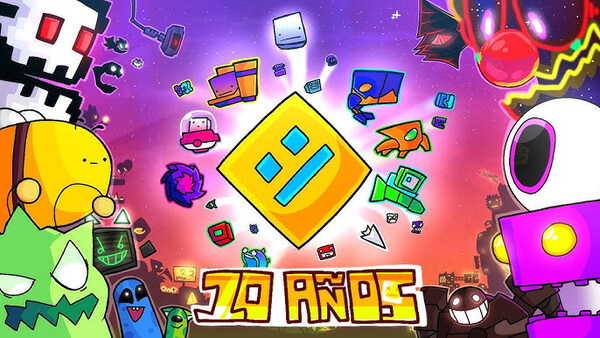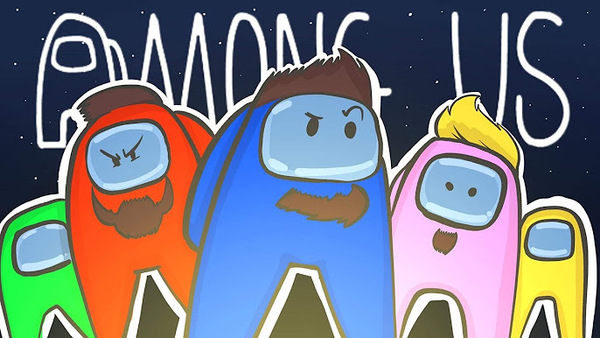Advertisement
Popular Now
Introduction
Toca Life, developed by Toca Boca, is a series of digital playgrounds where children can explore, create, and engage in imaginative play. Unlike structured games that set specific objectives, Toca Life emphasizes open-ended play, allowing children to craft their own stories and experiment within the game’s interactive world. The freedom offered by Toca Life encourages creativity, problem-solving, and self-expression. This article will focus on the educational value of open-ended play in Toca Life, exploring how it supports children's development through different game mechanics and elements.
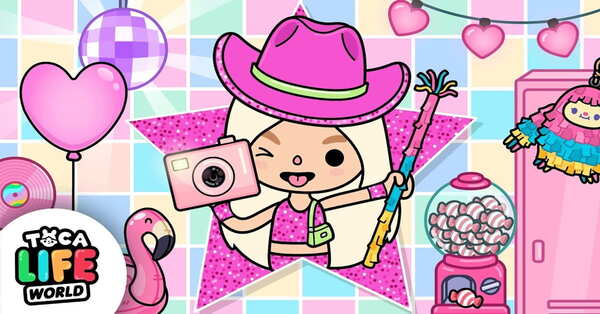 Open-ended play refers to activities that have no predetermined outcomes, goals, or rules[/caption]
This type of gameplay mirrors the way children play in real life-creating scenarios, using their imagination, and making up stories with toys and props. Toca Life replicates this experience in a digital format, providing players with a virtual world that supports unstructured, creative play.
Open-ended play refers to activities that have no predetermined outcomes, goals, or rules[/caption]
This type of gameplay mirrors the way children play in real life-creating scenarios, using their imagination, and making up stories with toys and props. Toca Life replicates this experience in a digital format, providing players with a virtual world that supports unstructured, creative play.
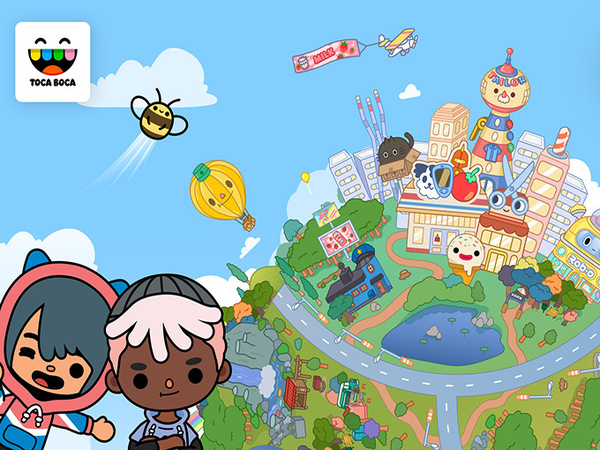 Role-playing is a core feature in Toca Life[/caption]
Role-playing is a core feature in Toca Life[/caption]
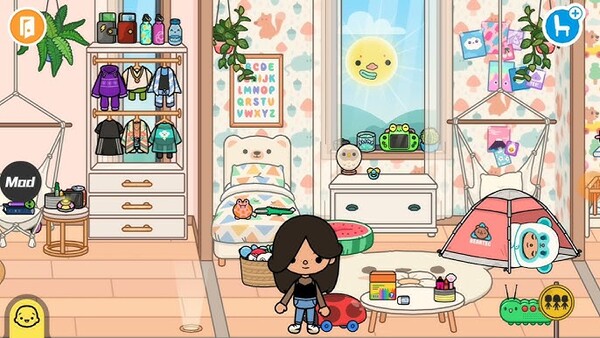 Customization fosters creativity and personal expression[/caption]
Customization fosters creativity and personal expression[/caption]
What is Open-Ended Play in Toca Life?
Open-ended play refers to activities that have no predetermined outcomes, goals, or rules. In Toca Life, players can interact with various characters, objects, and environments with complete freedom. The game lacks missions, scores, or rewards typically seen in traditional games, enabling players to explore at their own pace and invent their own narratives. [caption id="attachment_1675" align="aligncenter" width="600"] Open-ended play refers to activities that have no predetermined outcomes, goals, or rules[/caption]
This type of gameplay mirrors the way children play in real life-creating scenarios, using their imagination, and making up stories with toys and props. Toca Life replicates this experience in a digital format, providing players with a virtual world that supports unstructured, creative play.
Open-ended play refers to activities that have no predetermined outcomes, goals, or rules[/caption]
This type of gameplay mirrors the way children play in real life-creating scenarios, using their imagination, and making up stories with toys and props. Toca Life replicates this experience in a digital format, providing players with a virtual world that supports unstructured, creative play.
Key Aspects of Open-Ended Play in Toca Life
Free Exploration: Toca Life offers a wide range of environments, such as cities, farms, and schools, that are filled with interactive elements. Children can experiment with different items and locations, from preparing meals in a virtual kitchen to running a pet shop. Character Interaction: The game allows players to control multiple characters and interact with each other, fostering social and emotional development. Whether it’s setting up a family dinner or organizing a school trip, players create their own narratives and relationships.Encouraging Creativity Through Storytelling
One of the most significant educational benefits of Toca Life is its capacity to nurture creativity. Without fixed objectives or structured gameplay, children are free to imagine endless stories and scenarios. They can control characters’ actions, decide the direction of the story, and modify environments as they see fit. This aspect of Toca Life taps into the innate creative potential of young players.Story Creation in Toca Life
In Toca Life, players can craft elaborate stories involving their characters. For example, they might create a scenario where a character has to navigate a busy school day, solve a problem at work, or go on a family vacation. The lack of fixed rules allows them to shift between different settings and ideas at will, crafting narratives as complex or simple as they desire.Tools for Creative Expression
Character Customization: Players can modify characters' appearances and roles, adding a layer of personalization to their stories. Whether it's dressing up a doctor or styling a character’s hair, customization deepens the player's emotional connection to their creations. Environmental Changes: Players can alter the setting by moving objects, placing furniture, and interacting with items. These changes allow children to create new backdrops for their narratives, adding depth to their storytelling.Problem-Solving Through Experimentation
Toca Life encourages problem-solving by allowing players to interact with a variety of objects and experiment with cause-and-effect scenarios. While the game doesn't present formal puzzles, it encourages a trial-and-error approach, helping children learn how to overcome challenges and adapt to new situations.Interactive Object Manipulation
Players can combine various objects in unexpected ways, sparking curiosity and fostering critical thinking. For example, they might figure out that feeding certain items to animals produces unique reactions or discover that mixing ingredients in the kitchen leads to different food outcomes. These small moments of discovery help children develop analytical thinking skills and encourage them to approach problems with an open mind.Examples of Problem-Solving Scenarios
Managing a Pet Store: In Toca Life: Pets, players run their own pet store, organizing the animals, handling customer needs, and maintaining the shop. This scenario teaches children responsibility, multitasking, and resource management in a fun, hands-on way. Home Organization: In Toca Life: Home, players might face the challenge of organizing a house, from arranging furniture to preparing meals. This open-ended task requires players to think critically about space management, order, and the sequence of actions needed to achieve a desired result.Social and Emotional Learning in Toca Life
Toca Life excels at encouraging social and emotional learning by simulating interactions between different characters. Children often mimic real-life social situations within the game, which can lead to valuable learning experiences about empathy, cooperation, and conflict resolution.Role-Playing with Characters
Role-playing is a core feature in Toca Life, allowing children to simulate various real-world roles and responsibilities. They might take on the role of a teacher, student, parent, or shopkeeper, navigating everyday challenges and responsibilities in a low-pressure environment. This helps children develop an understanding of different social roles and the emotional responses associated with them. [caption id="attachment_1676" align="aligncenter" width="600"] Role-playing is a core feature in Toca Life[/caption]
Role-playing is a core feature in Toca Life[/caption]
Teaching Emotional Intelligence
Empathy and Understanding: By playing out various scenarios, children learn to see situations from different perspectives. They can explore how characters might feel in certain circumstances and how to respond to those emotions. Conflict Resolution: In scenarios where characters disagree or face challenges, children can experiment with different solutions. This fosters an understanding of conflict resolution and compromise, important skills in emotional development.The Importance of Multitasking in Toca Life
Another key educational benefit of Toca Life is its emphasis on multitasking. The game’s design encourages children to juggle multiple responsibilities and actions at once. For instance, in Toca Life: Office, players may need to manage their workday by attending meetings, completing tasks, and taking breaks.Developing Executive Function Skills
Multitasking in Toca Life helps build executive function skills, such as planning, organizing, and managing time. By assigning tasks to different characters and overseeing various activities, children learn how to prioritize tasks and balance competing demands.Common Multitasking Scenarios
Running a Restaurant: In Toca Life: City, players might operate a restaurant, managing orders, preparing food, and serving customers all at once. This helps children practice managing different activities simultaneously, a key part of executive functioning. Navigating a Busy School Day: In Toca Life: School, players must guide their characters through different classes, social interactions, and extracurricular activities, teaching them how to balance a busy schedule.Encouraging Independence Through Exploration
Toca Life’s design empowers players to explore the world at their own pace, promoting independence and self-directed learning. The freedom to explore without external guidance allows children to develop decision-making skills and gain confidence in their abilities.Promoting Self-Guided Play
The absence of specific goals in Toca Life encourages players to set their own objectives and experiment with the game’s mechanics. This sense of autonomy fosters a learning environment where children can take charge of their own experiences, making choices based on personal interests rather than game-imposed restrictions.Benefits of Independent Exploration
Self-Confidence: By making decisions and observing their effects, children gain confidence in their problem-solving abilities. Decision-Making: The game teaches children to make choices based on exploration and curiosity, rather than simply following instructions.Customization and Ownership in Toca Life
One of the game’s most powerful features is the level of customization it offers, giving children a sense of ownership over their virtual world. This aspect of Toca Life allows players to engage more deeply with the game, as they can shape the environment to reflect their own preferences and ideas.Customization as a Learning Tool
Customization fosters creativity and personal expression. Players can create unique characters, design homes, and build environments that reflect their personalities. This ability to tailor the game to their own tastes encourages players to think creatively and to experiment with different design choices. [caption id="attachment_1677" align="aligncenter" width="600"] Customization fosters creativity and personal expression[/caption]
Customization fosters creativity and personal expression[/caption]












